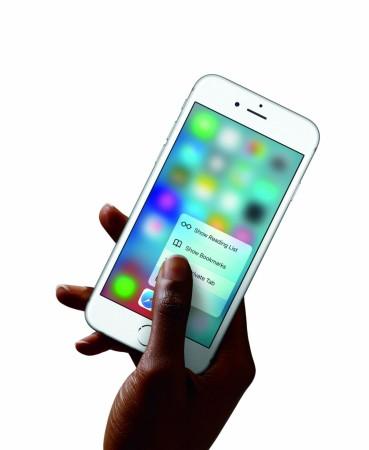
The mobile phone encryption war is not going to end any time soon, with lawmakers in the United States at loggerheads over a proposed bill to ban encrypted phones in a couple of states.
Rep. Ted Lieu, a Democrat from California, and Rep. Blake Farenthold, a Texas Republican, have come up with a new bill in Congress called the Ensuring National Constitutional Rights of Your Private Telecommunications (Encrypt) Act of 2016 in an attempt to stop states from banning sale of encrypted phones.
The new bill comes weeks after California Assemblyman Jim Cooper introduced a bill that says all smartphone manufacturers should equip their smartphones with a back door to give law enforcement access to private data. It was in tune with New York Assemblyman Matthew Titone's proposed bill in 2015 that sought heavy fine on manufacturers that can't decrypt their handsets.
The Encrypt Act of 2016 says a state shouldn't mandate a manufacturer to "alter the security functions in its product or service to allow the surveillance of any user of such product or service, or to allow the physical search of such product, by any agency or instrumentality of a State, a political subdivision of a State, or the United States."
Farenthold said New York and California want to weaken smartphone security by providing hackable "backdoors" and that the Encrypt Act aims at keeping phones private and secure. He went on to say all states need a uniform rule for law enforcement.
"Different rules in different states create a myriad of issues, and will actually make it more difficult for law enforcement officials. We need a unified approach to this issue that both protects security and privacy while enabling law enforcement to keep us safe," he said in a statement.
Most devices currently available in the market are encrypted to ensure security of personal data and smartphone makers don't have the access to decrypt the data. Popular devices, including Apple's iPhone and Android smartphones too need a significant redesigning if anti-encryption bills come into force.
Arguments in favour of banning encrypted phones
Proponents of anti-encryption are of the opinion that mobile phone-manufacturers should provide a back door to the phone's operating systems so law enforcement agencies can decrypt and get details of the users. They argued that it is necessary for national security and to crack down on criminals and terrorists.
The argument is law enforcement agencies may need details of phone conversations, text messages and videos watched by suspects or criminals for a crackdown, but encrypted phones don't give such access, thus hampering investigation process.
Arguments against banning encrypted phones
Proponents of the Encrypt Act of 2016 argue that providing a back door to law enforcement to access users' personal data not only compromises privacy but also leaves mobile phone users vulnerable to cyber criminals.
They are of the opinion that loosening encryption can leave smartphone users at the mercy of hackers, as they may hack into electronics devices and leak private details.
Background
It may be recalled that a few years ago whistleblower and National Security Agency (NSA) former contractor Edward Snowden had made startling revelations on the US' intelligence gathering that shook the xountry as well as the world. He had leaked secret documents of US surveillance programmes that include seizing vast amounts of telephone and web information of Internet users around the world under the NSA programme known as PRISM.
Snowden's revelations sent millions of Internet and phone users into a state of shock and anger, as their personal data could have been accessed by the NSA.












